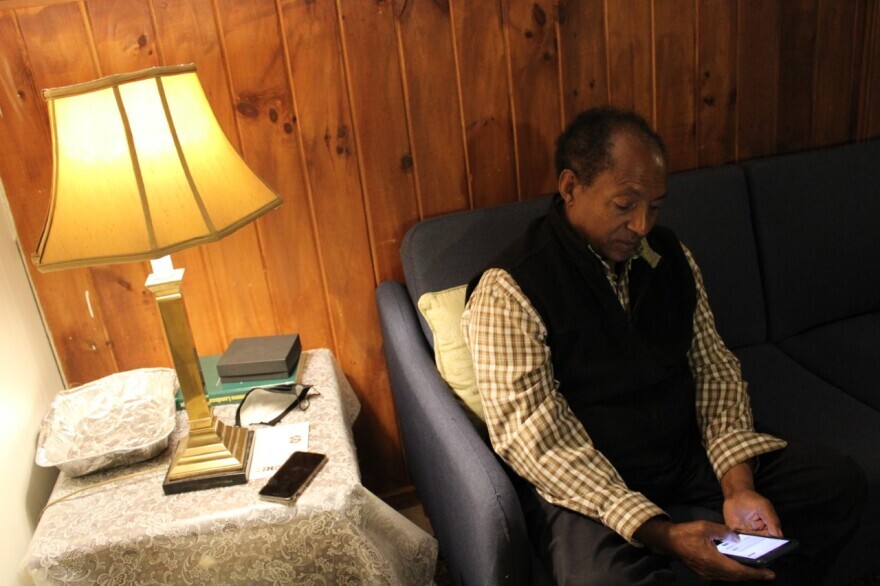Ethiopian woman finds safety in Maine after fleeing civil war, but fears for those left behind

Hagos Tsadik at his house in Cape Elizabeth, Maine, checking his phone for updates on the war in Ethiopia. (Ari Snider/ Maine Public)
As a civil war rages in Ethiopia, many Ethiopian immigrants in Maine have been cut off from loved ones back home. While one Portland resident was able to get her mother out of the country this fall, many others are struggling just to get in contact with family members in the war zone.
On a recent evening, Roman Ouhans settled onto a couch in her daughter’s apartment in downtown Portland, wearing a blue dress with a translucent white scarf draped gently over her head and shoulders.
Ouhans is a member of the Tigrayan ethnic group, from Ethiopia’s northern province of Tigray, where much of the fighting has taken place since a civil war broke out more than a year ago. Speaking her native language, Tigrinya, Ouhans described her life before the war. Her daughter, Senait Hayle, interpreted.
“We had a very good life,” Ouhans said. “We were happy, we lived like normal people live.”
Ouhans was living in the city of Axum with her teenage granddaughter when the war began between the federal government and Tigrayan regional forces last year. Soon, other groups joined the fighting, including the neighboring country of Eritrea, whose soldiers occupied Axum and massacred civilians in the city shortly before an orthodox Christian holiday.
“A lot of innocent people, they killed them in the road when they were trying to go to the church in the morning,” Ouhans said.
According to Amnesty International, the death toll from the massacre was in the hundreds. The United Nations has found credible evidence that all sides have committed potential war crimes over the course of the conflict.
When the war began, nearly all communication to the Tigray region was cut off, meaning those in the diaspora, like Senait Hayle in Portland, couldn’t get through to their loved ones, even as they read news reports of the atrocities taking place.
